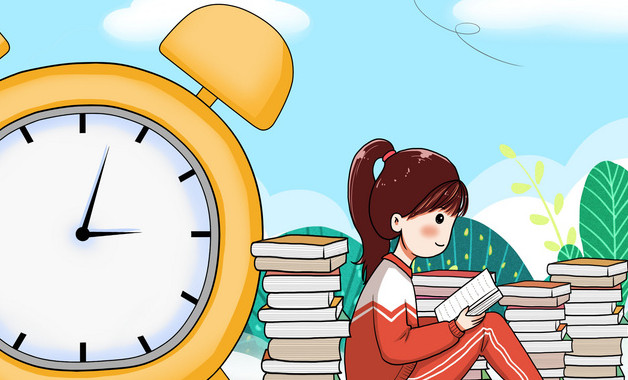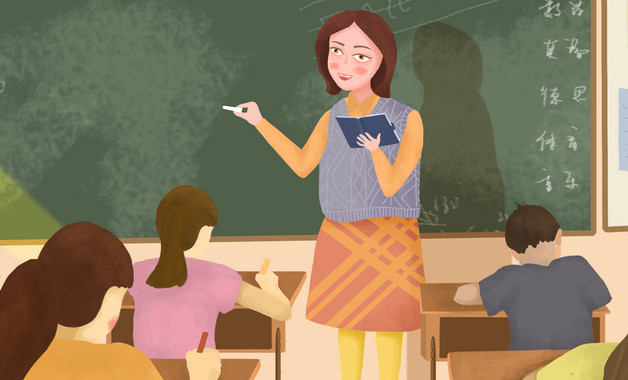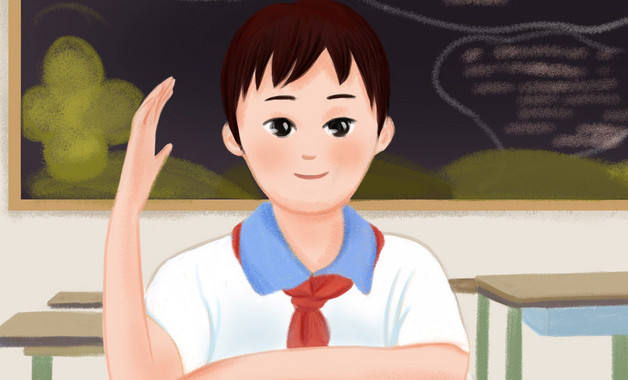篇一:教学反思
The reflection of Book4 Module3
Book 5 Module 6 Grammar I
Review the usages of Relative Pronoun
I think I have accomplished my goals very well in this lesson. From students’ response and their exercise, they have already acquired the usages of relative pronouns. However, my reflection is more than that:
I the Reflection of Teaching Objectives In this lesson, I persisted on 3-dimensional objectives,which including:1. knowledge & skills:students can be able to use the relative pronoun in attributive clauses so as to develop the ability to use attributive clauses.2. process & method: this is a grammar lesson of revision type, so I combine grammar process with revision process, which starts from observation, conclusion, memorize the rules and practice. 3. emotion, attitude & value: students can experience some attributive clauses questions from national selective examination so they can get prepared for the coming exam. At the same time, through group work, they can help each other to solve problems from logical analysis.
The above all is my objectives of this lesson. From some comments of other teachers they think I have accomplished these objectives successfully. As far as I am concerned, my objectives of each teaching process are very obviously, and my students can understand each step is to help them to acquire which acknowledgement.
II the Reflection of Teaching Content
The teaching content of this lesson can be divided into two parts: first one is to revise the usages of relative pronouns in attributive clauses and the second one is to develop their ability of use attributive clauses through some exercise including some original questions from national selective examinations.
The first part is about the review of the usages of relative pronouns in attributive classes. As we know, attributive clauses occupy a great amount of our grammar so I have to make sure they understand and acquire it completely, so usually I cut it into pieces. Relative pronouns are large pieces of cake to bite so I only choose to teach them the logical way to analysis and how to choose a correct relative pronoun as my priority goal. I plan to finish first part within 15 minutes. But actually with my familiar and fluent guidance, I finish it in 2 minutes advance. Some teachers suggest that I should make it slower and ask some of the students to give their own conclusion even though they have already known. So after all, I think the best time for me to finish the first part within some students’ conclusion is within 18 to 20 minutes.
The second part includes four types of exercise. The first one is memorizing all the rules of the usages of relative pronouns in attributive clauses. The second one is multiple choices which are base on the exception of only use “that”. Another one is some original questions which challenge their memory, logical analysis and skills. The last one is translation the following Chinese into attributive clauses. The exercise is following the order from easy to difficult and students seem to be very interesting and they master the logical analysis to deal with attributive clauses questions.
Shaanxi Normal University Shawna 134705
III the Reflection of Teaching Process
The teaching process including the following four steps:
Step I lead in
I use Harry Potter to lead in the attributive clause which grasp their attention immediately. Step II review the usages of relative pronouns in attributive clauses
I gave some sentences and ask them to observe all the sentences. What’s more, they should be able to conclude the structure, content, the usage of each relative pronoun by answering my questions. From my observation, most of the students can review the usage of relative pronouns because they can answer my questions fast and easily.
Step III exercise
Exercise is the way to estimate how much the students did master. So I plan four parts of it, which including memorize the each usage of relative pronouns for 5 minutes, choosing the best answer to test whether they memorize them correctly, doing some original questions from national selective examinations just ensure whether they acquire the logical analysis or not, translating the Chinese into English in order to develop their writing skills. Each process all based on the principle form easy to difficult. Students get confidence in the first two exercise so in the third exercise even though it is very difficult but it arouses their interest to solve them which even cultivate their cooperative spirits.
Step IV homework
The homework is bases on their translation. The kill is a little bit harder than the translation so it shows that the principle from easy to difficult completely.
IV the Reflection of Teaching Evaluation
I use oral evaluation. I think I am good at that by arouse their interests by asking some funny questions based on their daily life and give them big compliment after they did something great. V the Reflection of Teaching Result
The exercise is the best way to evaluate whether students can be able to master the knowledge of this lesson or not. From the four exercise, they did very well. I am especially surprised that how wonderful they finish their translation by making such small errors. As far as I counted, about more than half of the students can write the structure of attributive clauses within some mistakes. About one third of students can finish 7 sentences correctly. I am very proud of them.
VII the Reflection of the other teacher’s comments
All in all, as one of the new teachers in my school, I know there is still a long way to go. The following are some reflection for me after I talked to some of experienced teachers who are willing to make me become better.
First, the plan of this lesson is boring and not creative at all. I am a new teacher and supposed to think more and practice more. The time is so limited so I only practice once. That is my mistakes for being lazy.
Second, I have learned so much from my guide. The basic step of teaching grammar are observation, discover, conclude and practice. Grammar type lesson should be serious and clear. Teachers only need to elaborate rules and ask them to remember, the last thing that teacher need to do is to wait and harvest students’ fruit. Teachers are supposed to talk less and ask students to practice more.
Shaanxi Normal University Shawna
Anyway, this is a tough lesson for me to learn. Next time, I need to practice more than 3 times and invite a lot of experienced teacher come to my class.
Shaanxi Normal University Shawna 134705
篇二:以教师为中心和以学生为中心课堂教学反思
Reflection on Teacher-centered and student-centered
strategy in English Classroom
For centuries, education and curriculum designers emphasized English curriculum on teacher-centered learning. In recent years, although student-centered teaching method has been developed and been approached in real learning environment, the decision such as selection of language contents, ways of learning, assessment and evaluation of learning outcomes are still being made by teachers or educators. Traditional teacher-centered teaching and learning was the main way how students learned and teachers taught when I was a student. Normally, in the initial stage of English study, learners learned new rules and some vocabularies firstly, and then during the period of the practices imitation, learners practiced their pronunciation, exercised about the grammar, recited vocabularies. And after some English structures have already been acquired, sentence patterns and grammatical features were acquired gradually.
Teaching features of traditional teacher-centered method Teacher-centered English learning environment in Chinese classroom for me at each English lesson can be a picture of those teachers specifying class objectives, highlighting entry and learning behaviors, selecting and sequencing learning activities, and then evaluating the outcomes and behavior of students at the ending process. The activities which teachers choosing were general answering question, reading together with classmates, listening to tapes, dialogues study, playing and using flash cards. The teacher may barely used discussion and some student activities from students' sides. There also might be little interaction between students and the teacher and few group works in the classroom. The methods to assess and evaluate the language learning outcomes was the form of examination. The only role of a student was merely a listener.
Advantages of teacher-centered method:
This traditional English teaching -learning method in Chinese classroom as a
foreign language focuses on input of knowledge and structures of language itself and grammatical system. To beginners of English learning or inexperienced learners, it is often necessary to begin by teachers instructing enough fundamental knowledge and making most of the decisions as the foundations of learning. Also learners from the teacher -centered English classroom may cover more topics during the same
period and for teachers, they could achieve their objectives efficiently and control the class effectively.
Shortages of teacher-centered method
Learners who exposed in a long listening environment as listeners rather than participants will feel bored, fatigued, tired, undisciplined and sleepy. Teacher -centered English learning situations in Chinese classroom also are less tolerant toward the expressed students’ viewpoints, and it is more restrictive, critical in
valuing the behavior and motives of the students. This will constrict the creativity of students and they will less bring forth new ideas. Besides, one of the aims for learners to learn another language is for social interaction (Long, 1981). Students need to gain language communicational skills, need to carry out real world tasks and what they do with the language. While teacher -centered English teaching -learning style may block and less focus on the development of students' ability to listening and speaking in English.
Student-centered learning has advantages for both students and teachers. Students develop learning and other skills and gain meaningful knowledge that will help them throughout life. The relationship between rights and responsibilities is learned.
Students discover that learning is interesting and fun and they learned more because they were involved. Teachers have less traditional work to do, especially in the upper level classes. Students are more attentive and willing to participate in the class.
Complaints about irrelevance and unfairness decrease. Teaching is interesting and fun. Disadvantages:
One disadvantage is that there are students who do not relate well to
student-centered learning in spite of a teacher's best efforts. This is most prevalent at the lower levels but can occur in upper level classes. Another disadvantage is that the students have to work in teams. They complain about being on teams. Also students find it difficult to work in teams because they have not been taught team skills. Since student-centred learning places much more reliance on the active role of the student than does traditional teaching (where the student has a relatively passive role), student commitment and motivation must of necessity be very high. Thus, it may be less
appropriate for use with young or inexperienced learners than with older, more mature learners. Indeed, some people are never able to adapt to a student-centred style of learning.
As well as being the producers of learning materials, teachers have another new role in a student-centered learning system. They are no longer the primary conveyors of information, but adopt a more supportive counselling and tutorial role. This function may be difficult for some teachers to fulfill effectively (or even to accept) and, in many cases, it may be necessary to organize in-service courses and other staff development activities in order to help teachers to carry out their new role effectively. Teacher-centered method can give students lots of knowledge and information in a limited time. Student-centered method makes learning less stressful and more enjoyable. However, personally speaking, maybe the teacher-centered method is better for Chinese students. This method is more suitable in China, which has a large population and has a large number of students at school. Firstly, it is quite common that each class has more than 50 students, which makes the class hard to control. Such a large number makes the student-centered method almost impossible. Because the teacher doesn’t have enough time to organize any teaching activity, such as pair work, group work, and role-play. So class time is the first barrier of using student-method. Secondly, in China students’ seats are mostly set in a relative small space so that it is inconvenient for them to change their seats when a teaching activity is proceeding. Finally, the teacher-centered method can give students more knowledge and
information in a limited time. That’s to say, this method can make our class as informative as possible. On the other hand, college students are eager for knowledge and ability so they prefer to learn a lot from their teachers and professors. I can’t deny that student-centered strategy is a trend in teaching-learning environment but teacher-centered one is more applicable and feasible in China of course we shall spare our great efforts to make adjustment to it.
篇三:英语教学反思
Some Thoughts Concerning Education
Know English education, he was moved by the gentleman's education," education on" really is a very suitable for us to read -- understanding of Rock's" gentleman education" method; to study -- Study of Rock's educational thought, learning of his education; to distinguish - a dialectical view of the education of Rock thought and method, continuous improvement. I think that those people the beginning of a father mother or parenting, must read this book these his thoughts is recorded in his writings on education on" education"." Education in" book of 217sections, divided into three main parts: a body care ( section 1~30) two. The moral education ( section 31~146) three. Intellectual ( section 147~216)217th section is the conclusion.( a ) physical health careIn" educational talking", Rock first talked about
health education, because" we have our own business, want to be happy, must have a healthy body; and to achieve success and win recognition, rise head and shoulders above others, but must first have to endure hard to strengthen the body". In general, in our present point of view, should be put in the first place because of virtue, virtue is how to evaluate a
person's success factors, for example: we are not so care about Zhang Haidi's body or his mind is not complete and deny their ability. But, why would Rock do that attention to physical health? In fact, it is with the time closely related. The bourgeoisie in the rising phase, they are business, to navigation, exploration, colonial conquest, the fund with ew open up, so the body is not healthy to good and fast completion of these tasks. So, Rock solemnly presented" the happiness of life has a short but full description: healthy mind in a healthy body .". For him to have done special research as well as some hear seen specific comparative evidence to put forward specific suggestions for health education,
including:1avoid be spoiled;2 feet to exercise and cold bath;3swimming and outdoor
activities;4in5; diet and meal;6 sleep and bed78; defecation; medication;9 body care rules. He suggested that" a gentleman should be sincere and prosperous farmers do to treat their children", advocate" whether summer or winter, children should not wear too warm", the child is best not to wear a hat, should be every day cold feet, the sole to be thin, do not dress too tight, diet should be light and simple, do not drink wine or strong drink, fruit should be in anteprandial eat, rest time early to bed and early to rise, should sleep on a hard
bed, defecation time, after the medication is not sick. Also added was Rock clearly pointed out that" I will discuss here is mainly boys education method, the education of girls is not fully applicable.". The proposal put forward by Rock and our society advocate a healthy way of life there are many similarities, but some are not applicable, such as: Rock thought the meal time" as best as possible are not fixed," modern social thought this would make the digestive fluid secretion disorder, easily lead to gastrointestinal disease. Of course Rock these recommended in addition to exercise the child's body, to make the healthy growth of children will also help exercise.( two) moral educationTalking about how to make the
children keep healthy and energetic, Rock believed that "the second is the main problem to let the spirit remained normal, making it on all occasions can reflect a rational animal nobility of excellence". Rock puts forward " of all virtues and the great value principle and foundation is:, a person can restrain his desire, can disregard their own hobbies and pure follow a rational thought is the best guide, although desires tend to another
direction". I think this is the rationality is an important principle in the spirit of the
child, the most delicate time, let them to comply with discipline, obedience to reason, to
let them know what should be and what is not supposed to, what is to be done and what should not do, and why so why not do. As Thomas Henry Lakshley points out that" perhaps the biggest education value, it can make you do what you have to do, if that's what you should do, whether you like it or not.". Let the children learn the reason, learning using reason to
control their behavior, need to do:First, meet the child's natural need, but what, how much to meet, should from parents to children to choose and arrange. Can not because the child crying Begging, give him what he wants. So it is easy to enhance children's possessive. China is now the only child parents should pay attention to this point, never again will the child form" small emperor"" little princess", otherwise they blame is to obey in every way they too love their parents and other caregivers to their people. I personally think: in no
to meet at the same time, we should tell children why should such an arrangement, let them know we are well-intentioned rational, not give oneself over to blind emotions. For example, my little cousin in other friends and relatives can be most simply by crying she wants ice cream, chocolate, candy, also can refuse her didn't like the food, such as carrots, rice, fish. But in my home, my mother told her that she refused food for her growth and health. Then, her every day to eat a little. Along with the growth of the age, children will also slowly realize what is beneficial to them. But if the parents as early as possible to
explain to them the stakes, they should be a little earlier to understand these
principles.Second, to teach children to learn to share. " Let them know from experience, the most generous person who got the most, but also can get the respect of others and
reputation, so they will soon learn to do". Now China 's one-child more and more at home, their lack of companionship, only in kindergarten or school can come into contact with similar-age partners. So I think, parents and teachers to teach them how to share, share those belonging to their own things, such as: exchange toy play, share, share the fun,
together with the resolution of pain. Parents and teachers should encourage children to tell their partners together things, timely praise him or partners' positive behaviors and
thoughts, also want to point out their mistakes to give certain kind or severe
admonition.Rock on moral education also made many specific suggestions:1" education should doctrine is a major event training what kind of habit; therefore in this matter, as well as in all other things, if you do not want it to continue growing, cannot make a habit of it" to let children develop some good habits! 2 handle the relationship between parents and children," if you want a child in awe of you, you will be in his infancy. Mark; but when he is getting more and more close to the adult, you should take more and more familiar approach to treat him ( her ); thus, when he was young, one of your obedience servants -- it is then suitable for your identity, and later became one of your intimate friends, because in my opinion, people treat their children is extremely impolitic, them when the children were young hour let it free, and the adults regardless of you and me, but when the children grow up an adult, but the fulminate, keep distance with"3reward and punishment to develop
simultaneously, make children feel sincerely respected happy and be humiliated shame. " Only a moral constraint, because of wrong, should be punished and shame", while only a fault should be a punishment, it is stubborn, or rebel -- intentional. Determination of
resistance. 4 sermons to take into account the child's age, temperament and interest. 5let children learn moral in the most simple, the most easy, the most effective way is to"
establish you want them to do or should they avoid things model, the model refers to them,
at the same time, beautiful or ugly, published reviews.".( three) intellectual" Education" on the third part is about intellectual, Rock put forward some reasonable advice:1 induce children to learn, to learn as a reward or game;2let children read some simple, interesting and suitable for their ability to books;3foreign language learning should create a can only speak the language environment4teachers; the outstanding skill lies in and keep the students' attention.In the teacher's teaching methods, I would like to add to Armstrong's words:" if a child is a discipline with poor performance, we should from his strong intelligent project proceed with to remedy the missing items, but not always for him no intelligent project desperately to him. His weak intelligence to improve his has lagged behind the skill, but perceptibly, will only increase student learning helplessness, finally make his interest in learning completely disappeared".
篇四:教学设计与反思模板
教学设计
7. cheat. 1) v. to behave in a dishonest way in order to win an advantage;
2) n. a person who cheats; dishonest persons They cheated the old woman of her house and money.
The salesman cheated me into buying a fake. He never cheated in exams.
I see you drop that card, you cheat! I never thought that Sam is a cheat.
8. share 1) vt.&vi. (inwith amountetween) to have, use or take part in something with others or among a group.
2) n. (inof) the part belongs to, owed to or done by a particular person.
The money was shared out between them. Sam and I share a room.
We shared in his joy.
They always share their happiness and sorrow. I have done my share of the work.
9. crazy adj. 1) mad ; foolish 2) [+about] wildly excited; very interested
You're crazy to go out in this stormy weather. John's crazy about that girl.
She is just crazy about dancing.
10. dare v.& v.aux.. 1) + to do; 2) + v
to be brave enough or rude enough (to do sth. dangerous, difficult or unpleasant). How dare you accuse me of lying! How dare you ask me such a question? My younger sister dare not go out alone. He did not dare to leave his car there.
11. trust 1) n. [U] (in) form believe in the
honesty, goodness or worth etc, of someone or something
2) v. to believe in the honesty and worth of someone or something; have confidence in I have no trust in him.
I don’t place any trust in the government’s promises.
Why do you trust a guy like him?
I trust your wife will soon get well.
12. suffer v. (for) to experience pain, difficulty or loss
I cannot suffer such rudeness.
篇五:教学反思
《Unit 6 Holidays》教学反思
本单元围绕节日和“谈论节日里所做的事”来展开教学的,这是一个学生很感兴趣的话题。而本课时的有关的节日单词有的学生已见过,因此在本课的复习环节学生有的能读出单词,另外,本课的重点句型What do people usually do at/on??? When’s ?? It’s in ?和理解和朗读课文。英语因该从听,说,读和写四个方面来组织教学,因此每一堂课我都努力从这四个方面来展开教学工作。在对本课的教学时我尽量做到这四点。
一、从“听”入手,抓好学生学习英语的第一关。
学生要想学好英语,首先应从听的能力方面来培养。因此我在教新单词时先让学生听几遍,让他们先听清楚单词的发音,然后在进行模仿,这样效果就非常好。另外在课文的理解上,我也主要通过让学生听课文后来回答问题来训练他们的听力。在老师的提醒下,大部分的学生能够听懂并理解课文。但也有小部分学生并没有集中思想在认真听,更有小部分学生为了表现而在偷偷地翻书回答,这样就失去了所要达到的效果。在以后的课上一定要注意。
二、由“听”到“说”,培养学生应用所学语言的'能力。
学习语言的最终目的是为了应用,好多学生学了几年英语也不会张开嘴巴说,那就失去了学习语言的目的。为了让学生能够应用所学的语言,我在课上尽量给他们创造机会让他们张开嘴巴大声地说出来。所以在这节课上一开始,我就和学生进行师生对话互动,主要复习第五单元的句型,由于学生刚开始接触过去时态,在表达的时候就有一点困难,因此这些天一直在练习。之后我又让学生看着图片说出单词,学生发言非常踊跃。除此以外,在学生学习新句型时,我又让他们进行同桌讨论,让每个学生都能应用所学的句型来和别人进行交流,基本上每个学生都能做到。
三、流利地朗读课文是学好英语的必要条件。
朗读对学好英语的作用是不可置疑的。训练学生进行朗读一定要持之以恒,不折不扣,每个单元的每一课都要过关,都要熟练掌握,只要坚持一段时间后,他们就体会到反复大声朗读的美妙之处。肯定地说,他们对教材内容朗读的次数愈多,愈熟练,对所学内容运用起来就愈自然,愈娴熟,考起试来就愈得心应手。
四、“写”也是学好英语必不可少的环节。
“写”在英语教学中决不能被忽视,而且必须从一开始就加以强化练习。在课结束前我让学生抄写本课的词组,当然也是操练写的一种方法。但我想要是再能结合课文出示一些填空题可能会更好。学好英语必须抓好听,说,读和写四个方面能力的培养,四个方面缺一不可。做为一名英语老师,我们应该让学生能够听得懂英语,会说英语,会读和会写英语,从而能够真正学好英语。
Unit 6 Holidays
[教学背景]:
本单元围绕“谈论节日里所做的事”这一话题展开教学活动,其中出现了过去式的一般疑问句形式。学生通过学习,能了解中西方一些节日的时间,习俗和文化背景,并能理解运用新句式。
[教材分析]:
本单元主要围绕“谈论节日里所做的事”这个话题展开各项活动。这是一个学生很感兴趣的话题。为了让学生在课堂上“有话想讲,有话可讲”,老师可以在课前布置学生搜集有关东西方节日风俗的资料。在此过程中,老师要提出具体要求,如收集的途径、发言的时间、人数等??。
[教学方法]: 情景教学法 、演示法
[教学目标]: 1、能正确地听、说、读、写词汇Children’s Day, people。
2、能正确地听、说、读词汇Spring Festival, Mid-Autumn
Festival, May Day, National Day, Dragon Boat Festival.
3、能正确地听、说、读、写句型When’s ?? It’s in ? What do people usually do at/on ??They ?
4、能正确地理解、掌握对话内容,并进行简单的表演。
5、能运用本课时所教的内容谈论自己最喜欢的节日。
[重点、难点]: 1、能正确地听、说、读、写词汇Children’s Day, people。
2、能正确地听、说、读、写句型When’s ?? It’s in ? What do people usually do at/on ??They ?
3、能运用本课时所教的内容谈论自己最喜欢的节日。
[教学过程]:
Step 1: Free talk
1. Enjoy some English songs:
2. T: From the songs, we can know it is Christmas Day. Christmas Day is a holiday. Today we’11 learn Unit 6 Holidays.
3. 课件出示课题,齐读。Today we’11 learn the holidays in China. Do you know some Chinese holidays? (National Day / Children’s Day/ Teachers’ Day)
Step 2: Presentation
A. Children’s Day
1. 当学生说到儿童节的时候,课件马上出示儿童节的图片,朗读和拼写词组:Children’s Day
2. T: Do you know more about Children’s Day?(指名让学生说说)
Let’s surf the internet.(浏览儿童节的有关来历的节日资料。)
3.(课件出示儿童节的欢庆场面)T: When’s Children’s Day? (It’s on the first of June.)
What do you usually do on Children’s Day? (I usually sing and dance.)
We usually have parties at school, too.
4. 出示以上两个词组,跟读,个别读。
5. When’s Children’s Day? (It’s on the first of June.) 出示句型卡片。
What do children usually do on Children’s Day?( 引导学生回答:They usually sing and dance and have parties at school.)出示句型卡片。
6. Can you ask your partners? Work in pairs. Act it out.
B. Mid-Autumn Festival
1. T: Look at the picture! What’s this? (Moon cakes) What are they doing? (They’re eating moon cakes and watch the moon.) Look at the moon. How bright it is! So what holiday is it?( Mid-Autumn Festival)
课件出示词组,跟读,开火车读。中秋节介绍:It’s a
traditional festival. It’s for family. In China, people usually spend their time with their family.
T: When’s Mid-Autumn Festival? (It’s in September or October.)
I usually eat moon cakes at Mid-Autumn Festival. What do you usually do at Mid-Autumn Festival?(I usually ?)
What do people usually do at Mid-Autumn Festival? (引导学生回答:They usually eat moon cakes and watch the moon.)
Now, let’s make a dialogue like this: When’s ?? It’s in ? What do people usually do at ?? They ?(课件出示这段对话。) Work in pairs, act it out.
C. Dragon Boat Festival
1. 课件出示图片:What’s this? (rice dumpling-eat rice dumplings) Read after me. Read one by one. 出示另一张图片:What are they doing?(They are having dragon boat races.) 出示词组卡片,跟读,个别读。What are they doing? (They are watching the race.) So what holiday is it? (Dragon Boat Festival)出示词组卡片,跟读,小组读。Boys and girls, do you know Qu Yuan? At Drag Boat Festival, people usually throw rice dumplings into the river for Qu Yuan. Do you know more about Dragon Boat Festival?(生交流搜集到的资料。)
2. T: When’s Dragon Boat Festival? (in May or June.)
Can you make a dialogue like this?(指黑板上的句型。)Work in pairs. Act it in pairs.
3. 开火车问答。
D. Spring Festival
1. Listen, what can you hear? 课件播放鞭炮声。 What holiday is it?(It’s Spring Festival.)出示单词卡片,跟读,齐读,个别读。
2. T: Do you know something about Spring Festival?(指名介绍)
3. T: When’s Spring Festival? (It’s in January or February.) What do people usually do at Spring Festival? (They usually eat lots of delicious food and visit their relatives and friends.)出示两个词组,跟读,齐读。
4. Can you make a dialogue together?
Step 3: Consolidation
【英语教学反思范文大全】相关文章:
1.英语教学反思的范文
2.英语教学工作反思大全
3.对英语教学反思
4.英语教学反思
5.英语教学反思示例
6.英语教学月反思
7.Fruits英语教学反思
8.英语教学反思的报告










